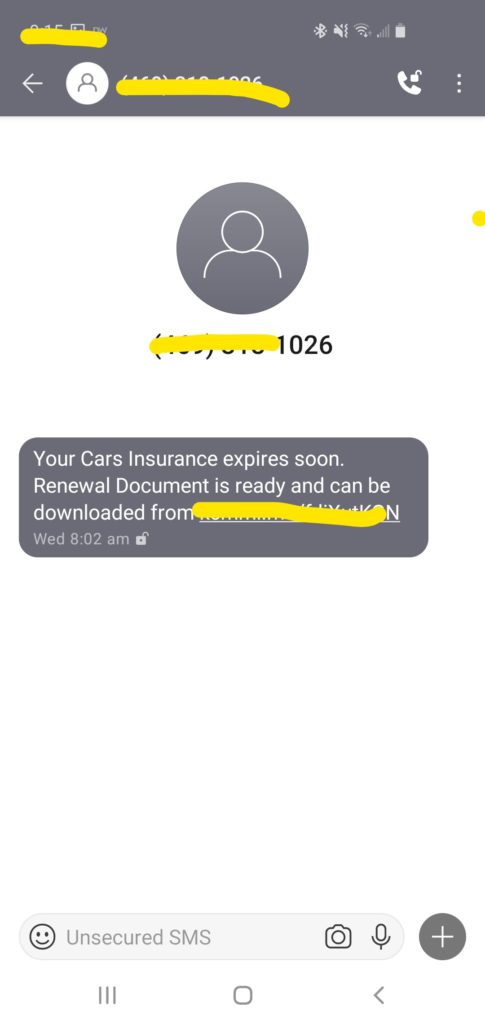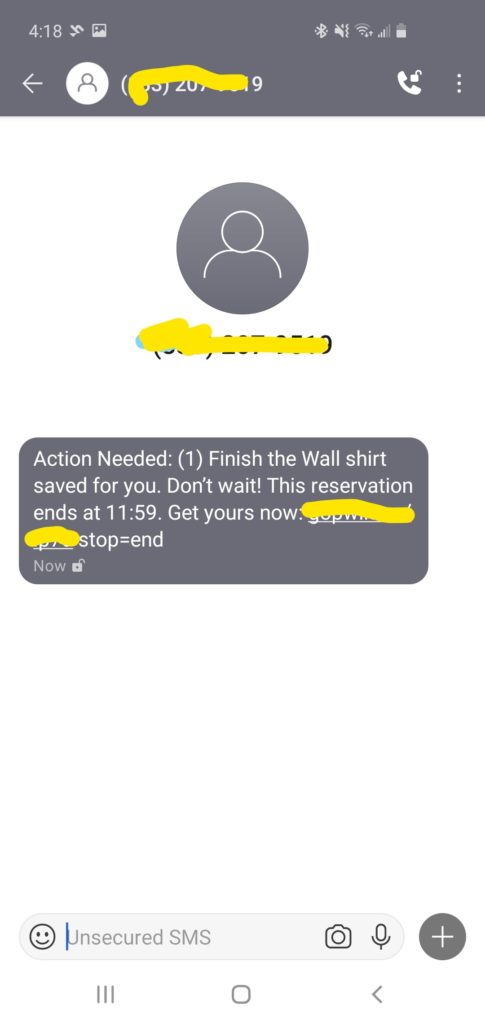Be ware of text Phishing
If you get a text like this, don’t click the link.

I wasn’t expecting a package, yet I recently received this text:

I happen to know that my auto insurance is not scheduled to renew:

How about this one? Finish the “wall shirt”? What is that?

All of the above are text messages I received in the last week! You’ve gotta be careful with text messages like these. My advice is delete them. Don’t respond or the sender will know they reached a valid working cell phone. But, definitely don’t click the link in a text message unless you know for sure who the sender is and why they are contacting you.
All four of the above are examples of text based Phishing. Had I clicked the link I’d likely see some form asking for my username and password. Cybercriminals are using these fake sites to try to get your identity especially email address and password combinations that they can use to access your actual accounts online.
Plus these links could potentially install spy-ware, malware or viruses on your phone. Ransomware could also be installed where your phone is literally “bricked” until you pay the Cybercriminal to release your device back to you. Save yourself some pain.
I recently finished reading Spam Nation by Brian Krebs. The book describes the long time issues on the Spam, especially email, on the Internet. It goes into how this is driven by immorality and fake pharmacies. The book ends with a practical section on how you can protect yourself. The authors website has a BLOG which contains more information and articles.
In fact, earlier this week Brian Krebs released a post about SMS based Phishing. Don’t click these links in text messages, especially if you don’t know who it is from. In the case of the auto insurance, if you think that might be valid, call your agent.
1 comment on “Be ware of text Phishing”
Leave a Reply
You must be logged in to post a comment.
admin
Thanks as always Carl! An ounce of prevention with a “disciplined personal firewall” will preclude having to get bogged down in exponential “damage control.” We have alot of IT online course requirements but the “Phishing” annual course requirement is golden. Links can be so tricky just to get you to have that one second weak moment to click on. They’ll put familiar names in the link such as “Google”, “Microsoft”. It can be a look alike with a not so obvious typo. Or a chain that throws you off on a misplaced hierarchy. Like “Microsoft” but not in a controlling position.
Blessings! And continued praises that you are back with us!
Jimmy